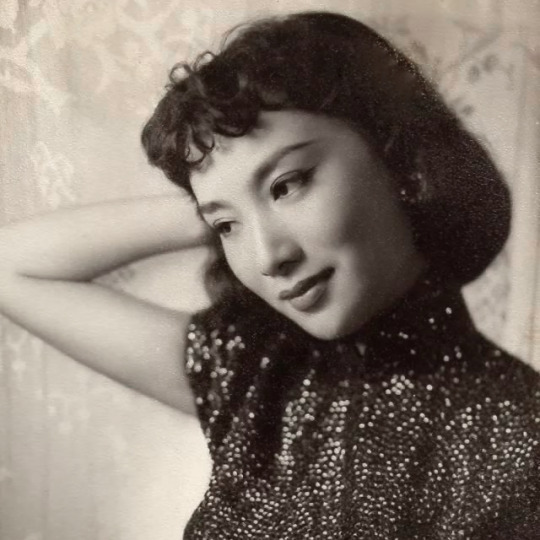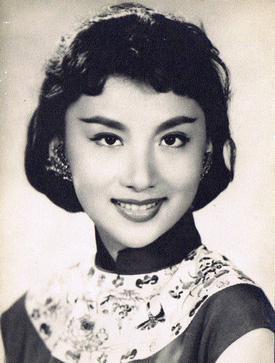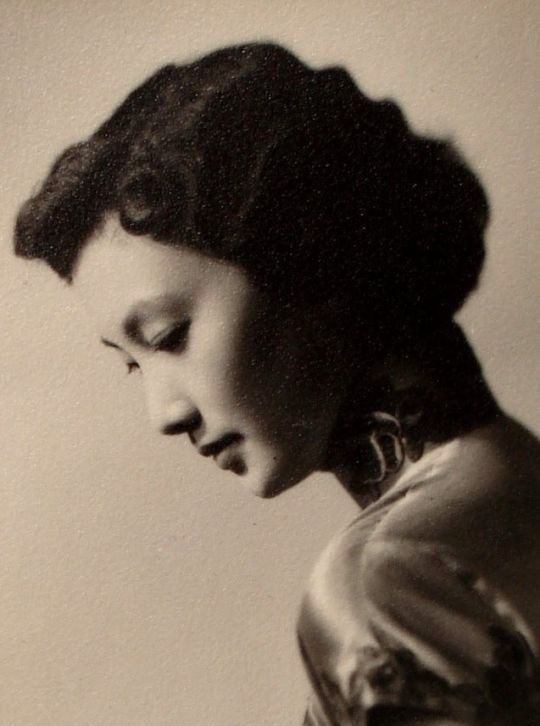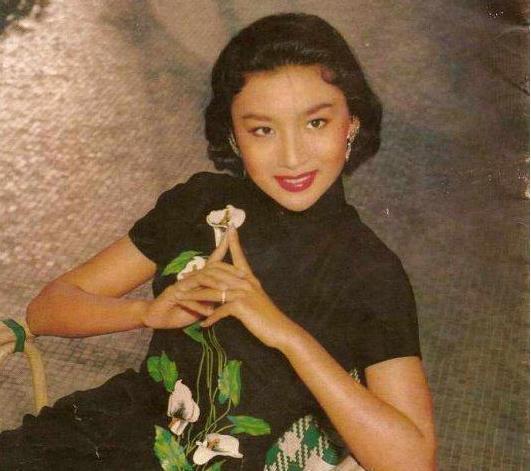#chinese influence operations
Text
Facebook Meta Influence operations
Facebook Meta Influence operations
Influence operations will have measurable effects on people’s beliefs and behavior, however inquiry doesn’t nonetheless adequately answer the foremost pressing queries facing policymakers.
Related Media and Tools
Combating it may be a major priority of governments, school platforms, and civil society organizations around the world.1 Nonetheless policy makers lack sensible info concerning the…

View On WordPress
#bad influence#brand influencer#chinese influence#chinese influence operations#chinese influence operations in india#chinese information operations#facebook meta#fake news: influence operations and global geopolitics#how to influence people#indias first meta influencer#influence#influence operation#influence operations#influence operations china#influence operations definition#influence operations meaning#influence ops#influence to earn#influencer#influencer marketing#influencer trends#kyra meta influencer#meta#meta analysis#meta facebook#meta heroes#meta influencer#meta influencer kyra#russian influence operation#russian operation
1 note
·
View note
Text


Propaganda
Alla Nazimova (A Doll's House, Camille, Salomé)—She was a proud lesbian, she was a director, she was artsy and experimental, she was instrumental in the rise to fame of Rudolph Valentino, she had the worlds biggest strap on energy
Xia Meng, also known as Hsia Moog or Miranda Yang (Sunrise, Bride Hunter)—For those who are familiar with Hong Kong's early cinema, Xia Meng is THE leading woman of an era, the earliest "silver-screen goddess", "The Great Beauty" and "Audrey Hepburn of the East". Xia Meng starred in 38 films in her 17-year career, and famously had rarely any flops, from her first film at the age of 18 to her last at the age of 35. She was a rare all-round actress in Mandarin-language films, acting, singing, and dancing with an enchanting ease in films of diverse genres, from contemporary drama to period operas. She was regarded as the "crown princess" among the "Three Princesses of the Great Wall", the iconic leading stars of the Great Wall Movie Enterprises, which was Hong Kong's leading left-wing studio in the 1950s-60s. At the time, Hong Kong cinema had only just taken off, but Xia Meng's influence had already spread out to China, Singapore, etc. Overseas Chinese-language magazines and newspapers often featured her on their covers. The famous HK wuxia novelist Jin Yong had such a huge crush on her that he made up a whole fake identity as a nobody-screenwriter to join the Great Wall studio just so he can write scripts for her. He famously said, "No one has really seen how beautiful Xi Shi (one of the renowned Four Beauties of ancient China) is, I think she should be just like Xia Meng to live up to her name." In 1980, she returned to the HK film industry by forming the Bluebird Movie Enterprises. As a producer with a heart for the community, she wanted to make a film on the Vietnam War and the many Vietnam War refugees migrating to Hong Kong. She approached director Ann Hui and produced the debut film Boat People (1982), a globally successful movie and landmark feature for Hong Kong New Wave, which won several awards including the best picture and best director in the second Hong Kong Film Award. Years later, Ann Hui looked back on her collaboration with Xia Meng, "I'm very grateful to her for allowing me to make what is probably the best film I've ever made in my life."
This is round 3 of the tournament. All other polls in this bracket can be found here. Please reblog with further support of your beloved hot sexy vintage woman.
[additional propaganda submitted under the cut.]
Alla Nazimova:


HOT as hell. GAY as hell. TALENTED as hell. Producer, director, writer, actress. A silent era superstar who is credited with having coined the term "sewing circle" as a code-word for gatherings of lesbian and bisexual women. Has been called "the founding mother of Sapphic Hollywood" and was the owner/operator of the Garden of Alla Hotel in West Hollywood, which she bought in 1919 and sold in 1928 after deciding she wanted to go back to Broadway. In addition to starring opposite Valentino in Camille, she also had an affair with BOTH of his wives (Jean Acker and Natacha Rambova). In her day, she was one of the most influential women in the business.

"Nazimova was primarily a star during the silent film era, and her career in film started when she was almost forty. She was openly bisexual, and was engaged in two lavender marriages during her life while she carried on relationships with women (including at least one, and possibly two, of Rudolph Valentino's wives). She was brilliant and an autodidact - when she first moved to the United States from Ukraine, she spoke no English, but taught herself "in about five months" and went on to work as a screenwriter (among other things). Her predilections lay in art film, and she's credited with starring in / producing / directing one of the first American art films, the adaptation of Oscar Wilde's play Salome (1923). She has an elegant and commanding presence in all of her films, and is an absolute sensation to watch in motion."

Gif link, another gif link

A great actress who also produced a great deal of her films, Nazimova is absolutely mesmerizing to watch. She was also bi and coined the phrase "sewing circle" for sapphic celebrities.



Xia Meng:





164 notes
·
View notes
Text
Former President Donald Trump authorized a covert Central Intelligence Agency (CIA) influence operation on Chinese social media in an attempt to turn public opinion against Beijing, Reuters reported Thursday.
Few details about the 2019 operation are known, including what platforms were used or whether the operation has continued under the Biden administration, but the CIA operation attempted to frame senior Chinese Communist Party Members as corrupt and Beijing’s Belt and Road Initiative as wasteful, Reuters reported. CIA operatives also reportedly posted similar messaging in countries where Beijing and Washington are competing for influence.
14 Mar 24
119 notes
·
View notes
Text
Tony Bobulinski:
Joe Biden Was ‘the Brand’
Excerpts from the written testimony of Hunter Biden’s business partner.
These are excerpts from the written testimony of Tony Bobulinski, a former business partner of Hunter Biden, submitted to the House Oversight and Accountability Committee Tuesday. Mr. Bobulinski is scheduled to testify before the committee Wednesday. Joe, Hunter and Jim Biden have disputed some of Mr. Bobulinski’s allegations.
I want to be crystal clear: From my direct personal experience and what I have subsequently come to learn, it is clear to me that Joe Biden was “the Brand” being sold by the Biden family. His family’s foreign influence peddling operation—from China to Ukraine and elsewhere—sold out to foreign actors who were seeking to gain influence and access to Joe Biden and the United States government.
Joe Biden was more than a participant in and beneficiary of his family’s business; he was an active, aware enabler who met with business associates such as myself to further the business, despite being buffered by a complex scheme to maintain plausible deniability.
If there is no evidence of corruption—if Joe’s conduct and the conduct of his family were fully legal and proper—then why are they so dishonest about it? Not just slight misrepresentations of fact but deep untruths about the entire corrupt enterprise.
Hunter Biden gave his transcribed interview to the House Oversight Committee on February 28 and lied throughout his testimony. Here are just three key examples of his perjury:
1. In Hunter’s transcript (Page 42), he states, “I officially began to do work for CEFC when the—when I received a retainer from CEFC in early—or spring of 2017.”
Why, then, did Hunter yell at CEFC Executive Director Zang in front of his entourage as I sat right next to him in New York City on Sunday May 7th, 2017? Hunter was adamant that he was owed the rest of the $20 Million CEFC had committed to paying for the work he had claimed he had done in prior years.
2. On Page 48 of his transcript, Hunter is asked, “He’s never interacted with any of your business associates. Is that correct?” The “He’s” is a reference to Joe Biden.
Hunter responds, “Yes.”
Hunter arranged the meeting between his father and me at the Beverly Hilton in Los Angeles on May 2, 2017. The sole reason Hunter wanted me to meet his father was because I was the CEO of Sinohawk, the Bidens’ partnership with CEFC. I was a business associate. In his transcript, Hunter confirms that that meeting with Joe took place and incriminates his Uncle Jim for perjury by confirming it.
3. Hunter also lied to the Committee about important details concerning his money demands and threats to CEFC on July 30 and July 31, 2017. He leveraged his father’s presence next to him in that infamous text in order to strong-arm CEFC into paying Hunter immediately, and in the process defrauded the partners of Sinohawk Holdings LLC and Oneida Holdings LLC. The threat worked, as a few days later the Chinese wired $5 million dollars into a company of which Hunter owned 50%. It’s important to remember that the CEFC considered this money an interest-free loan to the “Biden family,” and planned to send more. I have the email from CEFC to prove it.
Jim Biden also lied extensively throughout his transcribed interview before the Oversight Committee on February 21, and ironically, Hunter Biden—in his own testimony as outlined above—confirmed that Jim Biden perjured himself:
1. Jim has been selling “plausible deniability” for so many years he can’t tell truth from the lies. On Page 100 of his transcript, he is asked: “Do you recall having a meeting with Hunter Biden, and Tony Bobulinski and Joe Biden?”
Jim’s response: “Absolutely not.”
The Committee was so shocked by his perjury they tried to ask the question again in a slightly different way:
“It’s your testimony here today that meeting never took place?”
Jim responds, “Yes sir,” “that I was present for.”
The Committee tried again: “Do you recall whether you were at the bar with Hunter Biden, Tony Bobulinski and Joe Biden?”
Jim responds: “That I know did not happen.”
Jim adds further, “But my brother was never there.”
On Page 134, delusional Jim Biden reiterates his untruthful answer again after the Committee showed him messages confirming I met with Joe Biden.
Jim Biden states, “Joe Biden never met with Tony Bobulinski.”
That is just a flat-out lie.
2. On Page 124 of his transcript, Jim Biden states, “It was Hunter Biden, myself, Gilliar. I don’t know. It was the five. Okay? And everybody was 20 percent. Okay? You know what was never executed. It was never signed.”
Jim was then presented with a fully executed copy of the Oneida Holdings operating agreement that he and I had both signed along with Hunter Biden, Mr. James Gilliar and Mr. Robert Walker. On Page 132, Jim tries to claim he was not a member of Oneida Holdings.
Jim is so dedicated to his lies that he describes the Oneida document, a large legal document signed by the Biden business partners, as something that I might have come up with after drinking a “quart of gin” (Page 124). It’s absurd.
3. Jim Biden further lies by claiming “Bobulinski was trying to usurp and replace Hunter Biden.” (Page 123)
Hunter Biden, Robert Walker, James Gilliar and Jim Biden asked me to step in as CEO of the business. I did not ask them. I tried to walk away from Sinohawk multiple times only to be convinced to stay on, including on one occasion by Jim Biden himself. The company was controlled by a Board of which the 4 of them could out-vote me on anything. They had control of the company. . . .
Why is Joe Biden blatantly lying to the American people? . . . If he were doing nothing wrong, why go through this insane exercise of obstructing and denying obvious facts? . . .
The reason is because the Biden family’s profiting of tens of millions of dollars from our strategic opponents and corrupt individuals and entities around the world—without delivering any goods or services and while putting in minimal effort and work—causes Americans to rightly question any policies from this administration that apparently benefit those same strategic opponents and corrupt individuals and entities. Just read the latest motion by the Department of Justice related to Hunter Biden’s criminal indictments in California; the DOJ states that he made large sums of money for very little work.
#Joe Biden#Hunter Biden#James Biden#Corruption#Misuse of public office#Federal Crime#State Crime#investigate. indict. prosecute. incarcerate.#trump#trump 2024#ivanka#president trump#repost#democrats#donald trump#america#invertebrates#americans first#america first#art#nature#landscape#fashion#lol#gif#diy#love#travel#food#white house
49 notes
·
View notes
Text
MXTX Diaspora May 2023 is drawing to a close, so here are some personal reflections
As some of you may know, MXTX Diaspora May was originally started by Frost in 2021 as a means of elevating Chinese diaspora creators in fandom. At the time the event was set up, the climate in fandom was truly a hostile one, with Chinese diaspora creators routinely facing discrimination and marginalization. Adding to that were a slew of vicious hate crimes against Asian diaspora people in real life.
May is AAPI Heritage month in the US, and thus it was chosen as the posting month for the event. In other words, it was a time for us to come together, to heal, and above all, to let our voices be heard.
Since 2021, the scope of MXTX Diaspora May has evolved. Instead of solely focusing on MDZS, we now spotlight fanworks for all of MXTX’s novels. More importantly, MXTX Diaspora May has gone international in welcoming the participation of Chinese diaspora creators from not just the US, but all around the world (like me)!
So, why is MXTX Diaspora May so meaningful to me?
At the time that Frost invited me to be a part of the mod team, I was honestly struggling to find a place in MDZS fandom. I was frequently spoken over, treated as an expendable resource for cultural information, and on the receiving end of comments that contained racist microaggressions (and sometimes, outright aggression). Dealing with these interactions was exhausting, as well as grappling with the constant feeling that I had no real right to be in the English-speaking fandom. I still feel like this, even today — works where I (subconsciously or otherwise) downplay my identity as a member of the Chinese diaspora are always substantially more well-received than works where I do not. In other words, as some commenters (helpfully) pointed out to me, it was exhausting and difficult to get into the stories I told and the viewpoints I presented, especially if they contained too many cultural markers and language code-switches.
Being part of MXTX Diaspora May changed everything for me. Creating and interacting in this space that belonged to us, that was built solely for the purpose of elevating voices like mine — it meant that for once, I could tell the stories I wanted to tell, to the likeminded people I wanted to reach, without needing to downplay, apologize, or make excuses for just how unpalatable they might be.
Personal revelations aside and back to the culture-building aspect — I truly believe that the path to disempowering racist structures in fandom (and by extension, in real life as well) lies in changing the fundamental mindsets and worldviews of people. And to achieve that, we all have to relearn the ways in which we think, feel, and operate. MXTX Diaspora May is built on this very principle — the belief that through giving a platform to marginalized voices and actively encouraging open dialogue and appreciation, we can connect with each other over our shared experiences and gradually influence the perception that others outside our immediate circle have over our culture and language. It is an active, inclusive, and sustainable way of dismantling preconceived notions and habits that allow racism to flourish in fandom.
At the same time, it is also worth acknowledging that there is also a limit to how much power we place in institutions to do the work for us. Sit with the discomfort and the exhaustion, question our preconceived notions, and challenge our hearts — and I am optimistic that as things change at the individual level, the associated structures and systems will naturally follow.
So, where should we start?
There are so many ways we can be a part of the movement to dismantle systemic racism against members of the Chinese diaspora in MXTX fandom. One of the most actionable ways would be to boost and consume works by Chinese diaspora creators. And if we’re reading, listening to, or looking at something that doesn’t immediately appeal to us, and especially if we find ourselves struggling to comprehend or relate — ask ourselves honestly if it is a failing on the part of the creator, or just our own unfamiliarity with the context of the work, and/or implicit biases coming into play. Take our time to realize it for what it is, and then decide from there whether to move on, or move ahead.
MXTX is a Chinese writer, and her works are an extension and reflection of her culture and upbringing. It is impossible to separate her identity and belonging from the stories she writes. It’s exactly the same for us Chinese diaspora creators. Wherever we are in the world, however we were raised, and whatever pieces of ourselves that we choose to share in our works — I hope that we will continue to find our peace, our pride, and our homecoming whenever we do.
Resources
MXTX Diaspora May collection (2023, 2022, 2021)
Danmei Diaspora Creatives collection (showcases work by Chinese diaspora creators across a myriad of danmei fandoms including MXTX; not affiliated with MXTX Diaspora May)
Directory of MDZS fics and podfics by Chinese diaspora writers that are focused on the modern diaspora experience, compiled by G (not affiliated with MXTX Diaspora May)
317 notes
·
View notes
Text
Okay, so I'm thinking about linguistics on Cybertron, especially between city-states and caste influence.
I want to emphasize that I don't know jack shit about linguistics, so feel free to jump in if I'm using the term wrong or I'm veering into weird/silly territory.
Because of a lot of fanon interpretation and Bayverse, I'm viewing Cybertronian/Neocybex as ridiculously tonal and, unlike humans, are able to vocally include subglyphs -(sub)harmonics that closely act like written Chinese characters or Japanese kanji.
I'm really stressing the written part because Cybertronians have the capability to able to differentiate a word's very specific meaning without going through all the context surrounding it. So instead of vocally explaining that their names or meaning is "this," people already know.
Think of the name Miko and how many of us already immediately think of shrine maiden. But there are different kanji variations of Miko, so the meaning changes to exemplify certain characteristics or future aspirations.
There is a culture clash between dialects as names can rise from different conventions and inspirations. Hence, the IDW Megatron joke of his name being derived from neutron, the bomb. And TFP Megatron from the Fallen.
In terms of dialect by regional/city-state differences:
Kaon and Tarn: highly forceful and the underscores of territorality (mine versus not yours); very direct and clear cut; incorporated meanings with biolight usage and plating noise
Vos, Praxus, and Polyhex: aggressively stresses the group/flock/cohort rather than the individual (even Starscream with his me/I has a lot of accompanying subglyphs that stresses his position as the second-in-command to the Decepticons, Air Commander, and leader to the Elite Trine), very conscientious of social dynamics and ranks, pecking order is strictly held yet contains fluidity to be challenged, use of more "animalistic" noises, body language with wings/panels, expanded lexicon for spatial relationships during traveling operations
Iacon: emphasis on social hierarchy via one's occupation (aka their caste); formal and cold as it utilizes the least amount of subglyphs (viewed to be academic or stem from it); purposely more general rather than specific
I'm willing to bet the Lost Colonies of Cybertron had developed their own unique flavor of Neocybex/Cybertronian, especially without the immense pressure of Functionism.
#transformers#tf headcanons#cybertronian language#cybertronian culture#cybertronian biology#maccadam#my writing#my thoughts#imagine Nickel and Camien nurse blankly staring at the DJD from culture clash because of linguistic differences#yes Prion and Caminus have Conjunx Ritus#but what the fuck you mean “Primary” Conjunx and “Seconday” Conjunx?!#i cant believe i forgot a chunk of it#i updated it
67 notes
·
View notes
Note
Please clarify what you mean by “israeli psy op”
Psyops are traditionally actions taken by military or police to influence the beliefs and opinions of the public, usually covertly. A historical example of psyops is that time in the 50's when the CIA used local Filipino superstitions about vampires to keep farmers from voting against US interests: they nabbed a local Huk rebel, cut his throat, hung him upside-down in a tree for a few days until his blood drained out, then left him somewhere the other rebels would find him so they'd be too scared to leave their homes to go vote.
Yeah.
These days, I would personally include the actions taken by multinational organizations such as Amazon, when they created multiple fake Twitter accounts to convince workers not to unionize; however, that's just my opinion.
In the current Israel-Hamas conflict, there have been multiple attempts by Israel to plant disinformation in the public narrative, including taking pictures from a Palestinian man's Instagram and presenting them as if he was a Hamas crisis actor, or pretending that the recent synagogue attack in Armenia was carried out by ASALA, an organization which hasn't been around since the 90's.
As somebody who served as a psychological operations specialist in the US Army, I find the attempts by the Israelis to be clumsy and easy to unravel. US, Israeli, and Saudi psyops are characteristically flat and easy to pick apart; Chinese psyops are more adept, but right now no one is better in the game than the Ukrainians and the Russians (which makes sense, as the Ukrainians were probably trained by Russians during the Soviet era).
50 notes
·
View notes
Text


Planet Jupiter: Correspondences, Magick & Astrology ♃
Correspondences
Colors Associated with Jupiter
Violet, rich purple, blue, yellow.
Plants associated with Jupiter
Jupiter plants are usually large and bold or darkly colored and often have meaty, wholesome and nutrient-dense fruit. Jupiter flowers and fruit are often yellow.
The effects of Jupiter plants include a general feeling of warmth and contented relaxation.
Minerals Associated with the Planet Jupiter
Minerals associated with Jupiter promote connection with the divine and higher states of consciousness, enhances luck and encourages leadership qualities and success. Jupiter stones are the stones of royalty.
Some examples of minerals that correspond to the energy of Jupiter include: tin, Amethyst, Lepidolite, Sugilite, Lapis Lazuli, Sapphire, Diamond
Deities Associated with the planet Jupiter
Jupiter is associated most often with male deities, particularly those identified as King of the Gods who rule over storms, the sky, the wind and fatherhood.
Adonai,
Tzevaot,
Amon-Ra,
Changó,
Dagda,
Indra,
Itzamna,
Izanagi,
Jove,
Jumala,
Kitchki,
Manitou,
Nuada,
Num,
Odin,
Ran,
Reshpu,
Ukko,
Uwolowu,
Viracocha,
Vishnu,
Were,
Jehovah,
Jupiter,
Yu-Wang-S
The Planet Jupiter in Astrology
Jupiter is the ruling planet of Sagittarius, and Pisces according to some. In Roman mythology, Jupiter was the ruler of the gods (having overthrown Saturn) and their guardian and protector, and his symbol was the thunderbolt. In the same way, the planet Jupiter is the king of the other planets, a giant in size with spectacular, brightly colored clouds and intense storms.
Astronomers believe that it plays an important protecting role in using its massive gravity to capture or expel from the solar system many comets and asteroids that would otherwise threaten Earth and the inner planets. Jupiter takes 11.9 years to orbit the sun, spending almost an earth year (361 days) in each sign of the zodiac.
Astrologically Jupiter is associated with the principles of growth, expansion, prosperity and good fortune; and a person’s inner sense of justice and morality and their ideals and higher goals. Jupiter governs long distance and foreign travel, higher education, religion, and the law.
In modern times Jupiter is said to be the ruler of the 9th and 12th houses, but traditionally Jupiter was assigned to the 2nd and 9th houses (the house of values and the house of beliefs, respectively) and had ‘joy’ in the 11th house of friends and aspirations.
Jupiter is associated with Thursday, and in Romance languages, the name for Thursday often comes from Jupiter (for example, Jueves in Spanish or Jeudi in French). Dante Alighieri associated Jupiter with the liberal art of geometry.
In Chinese astrology, Jupiter is ruled by the element wood, which is warm, generous and co-operative. In Indian astrology, Jupiter is known as Guru or Brihaspati and is known as the ‘great teacher’.
Jupiter in Medicine
In medicine Jupiter is associated with the liver, pituitary gland and the disposition of fats; it governed the blood / sanguine humor.
33 notes
·
View notes
Note
Russia has demonstrated that they can inevitably attrite ukraine. defeating Russia would require a radical expansion of ukrainian offensive capabilities far above the threshold that Putin will seek nuclear escalation. unless biden is prepared to end the world (over ukraine and not Chinese Taipei or Israel as he is willing to), how do propose "beating" CSTO .
This is cute. Russian cope always has this distinct flavor of "we're a great power and we can't be beaten," despite the fact that Russia has experienced numerous failures and has largely been exposed as an incompetent military power.
Frankly speaking, CSTO doesn't really need to be beaten. Given that Kazakhstan has dismissed CSTO troops and Armenia largely sees no hope for CSTO, the world has largely seen Russian security commitments as worthless - they are incapable of fulfilling said agreements given that Russia has largely bled out its force in Ukraine. It's a zombie organization, shuffling on in a semblance of life as opposed to an actual living organization. I predict it largely collapses as Russia loses the ability to influence the near-abroad and Central Asia seeks other partners that can actually fulfill obligations to ally nations.
I don't think Russia has demonstrated the ability to attrit Ukraine. In fact, given the numerical superiority, any competent military would have succeeded their battlefield objectives relatively easily, even if they lost the peace and occupation to come after. Avdiivka was supposed to fall - Russia kept saying it was, and it hasn't. As I've mentioned before, Russia is an incapable force conventionally and has been for a long time. Economically, they're weak and coring out their economy to sustain their fool's crusade. Militarily, they're sluggish, uncreative, and reduced to begging Iran and North Korea for aid to conquer a country with a fraction of the size and manpower, had no navy to speak of and the faintest wisp of an air force. In a conventional conflict, Russia has no advantages against a NATO country other than perhaps the zeal to throw themselves on the enemy's spears - an emotion that only comes from the realization that you live in Russia.
Fact of the matter is, revitalizing the defense industrial base and actually producing HIMARS and other quality armaments would be more than enough to destroy Russia, and wouldn't even reach the Russian nuclear escalation as defined in Russian doctrine. Hell, if we actually had courage in our foreign policy establishment, Russia would have been defeated and sued for peace already as the aid shipments quadrupled. That would be better off for the whole world, including Russia. Especially for the minority populations Russia keeps sending off to die so the elites in St. Petersburg and Moscow don't have to feel the consequences of their actions.
I don't fear nuclear escalation because Russia isn't willing to end the world because the elites like having their vast wealth and the wide array of perks that it offers access to. They wouldn't do it just because they can't have Ukraine. Honestly, Russia should count its lucky stars that they have a nuclear deterrent, otherwise China would have invaded it already to seize resources from the Central Siberian Basin. Alas for the rest of us, Russia was free in the 1990's to launch damn fool wars in Central Asia and Eastern Europe to reassert its own imperialist glories, rather than being brought to heel. Alas, now it can continue to pretend it's anything other than a decrepit excuse for a country run by a wannabe tsar with a Napoleon complex crying over the fact that his country lost the Cold War and no one fears or respects the Russian bear. Boo-hoo. In the words of your fearless leader after the Beslan school siege where you simply mowed down your own people because you couldn't handle a single hostage operation: "You've shown yourselves to be weak, and the weak get beaten."
Also, as a pro-tip: the verb attrite means to wear down by use (as in to wear down a tool through using it for hours on end). You want the verb attrit, which means to use sustained offensive pressure to weaken an opponent. You might want to brush up on your English; this goes double against someone who not only takes great pleasure in laughing at Russian trolls but someone who actually studies the terminology of military science.
Cry more, Anon.
SomethingLikeALawyer, Hand of the King
46 notes
·
View notes
Text
Man Suang latest updates
On the 1st of August, Mile (and some other actors) were in the studio to edit some of the characters’ voices !

Aug 5 update:

New characters unveiled

On the left: 'Mae Tubtim' - played by Nonthakorn Chalermnai - is Man Suang's madam of female and male prostitutes. Many years ago, she was sold by a previous brothel to become the wife of an elderly noble. When her husband died, she inherited quite a lot of property. But she chose to live in Man Suang, where she felt safe and not looked down upon.
On the right: 'Mae Kru Phikun' - played by Ornanong Panyawong - serves as a trainer for a males court dance drama in ManSuang. She was a former dancer in the royal court during the previous reign. Her goal is to carry on the traditional performing arts. She earns admiration and respect even from Chao Sua Cheng.

On the left: 'Phraya Bodisorn' - played by Pradit Prasartthong - is a grand nobleman from the royal court. He is descended from a wealthy and powerful family, blessed with abundant influence, prestige, and an extensive network of connections. He is an unwavering conservative who is adamant that his beliefs are the epitome of correctness.
On the right: 'Phraya Wichiendej' - played by Gandhi Wasuvitchayagit - is from a new generation of Royal Navy aristocrats, smart, sharp-witted, and cunning. He employs these abilities to carve out his place in society and assert his influence.

On the left: 'Chao Sua Cheng' - played by Chartchai Ketnust - is an Overseas Chinese who owns ManSuang. He is ambitious, foresighted, and is welcome to explore new things. Despite his strong determination, he possesses a compassionate nature and holds his friends dear.
In the middle: 'Khun Sutin Borirak' - played by Sonny Chatwiriyachai - is a civil servant of mixed Chinese heritage who prefers to serve in the government rather than pursue business endeavors. He tries to prove himself to both his family and his wife.
On the right: 'Tiang' - played by Saifah Tanthana - is the trusted right-hand of Chao Sua Cheng. The only son of a sworn brother who once jointly operated a liquor business. When Tiang's father passed away, Cheng embraced him like an adopted child and placed immense trust in him, allowing him to assist in managing all affairs.

'Hong' - played by Tong Thanayut Thakoonauttaya - is the only heir of Cheng, the influential ruler of ManSuang. Therefore, whether willingly or unwillingly, it is his job to inherit the father's deeds and authority.

'Wan' - played by Bas Asavapatr Ponpiboon - is an orphaned commoner from a rural province like Khem. He’s trustworthy, kind, and a cherished friend to Khem. He sees Khem as his only family and places immense trust in him. He sincerely admires everything Khem does, including dancing, despite his own limited abilities in comparison.
the cover of one of the songs from the Man Suang soundtrack is out!!!
The song’s name is HIDDEN (เร้น) by Cocktail Band

Zoom in:

#is chatra sad???#but so pretty damn 😍#HIS CALF#kinnporsche#mileapo#apo nattawin#mile phakphum#tong thanayut#bas asavapatr#man suang#mileapo movie
68 notes
·
View notes
Text
Over the past year, TikTok has emerged as a bipartisan target in the United States, with politicians on both sides of the political spectrum raising concerns about Chinese ownership of—and potential influence over—the social media platform. Among these critiques is a worry that Chinese messaging could more readily reach young Americans, who are a majority of the platform’s user base in the United States. This led, in late April 2024, to the passage of a bill in Congress that requires ByteDance, the company’s Chinese owner, to divest from TikTok over the next year or risk a ban of the app across the United States.
Yet, much like other social media platforms, TikTok’s viral content is not limited to Chinese state-backed accounts. Amid a fracturing of the online information space, marked by the growth of platforms that cater to more targeted audiences, Russia’s state propaganda apparatus has begun to leverage TikTok’s growing appeal as a new avenue for disseminating overt Kremlin messaging through a network of state-affiliated accounts. How has Russia shifted its approach to capitalize on TikTok’s expanded reach and appeal? How does this compare to the activity of state-affiliated accounts on other prominent platforms, such as X (formerly Twitter) or Telegram? And what has been the focus of messaging from these TikTok accounts thus far? To answer these questions, I draw on data from Russian state-affiliated accounts on TikTok, Telegram, and X. I find that:
Russian state-affiliated accounts have accelerated their use of TikTok since the start of 2024: In 2022, 57 accounts posted at least once during the year, with just one posting on average twice per day. In 2024 so far, 46 accounts have posted, with three averaging 10 or more posts a day. However, the number of active accounts on TikTok, and the number of posts per account, still lags far behind accounts on Telegram and X.
Although Russian state-affiliated accounts are far more active on other platforms, engagement per post on TikTok is much higher: 44 of the top 50 most engaged with posts in 2024 hail from TikTok, while the remaining six were shared by accounts on X. These posts on average have drawn over 3.5 million engagements. On average, TikTok posts draw approximately 100,000 total engagements per post, 3.5 times the rate of Telegram and 20 times the rate of X.1 If we remove views, which may be measured differently across platforms, engagement per post is still 13 times higher on TikTok than on X.2
Russia’s experimentation with TikTok is particularly timely. Amid contested elections in the United States and elsewhere, the results could dramatically reshape support for Ukraine and NATO. Against this backdrop, Russia’s malign influence operations are likely to continue, according to a recent report by the Office of the Director of National Intelligence. Based on an analysis of TikTok posts from the first three months of 2024, I find that:
Posts pertaining to U.S. politics make up a small percentage of overall content shared by Russian state-affiliated accounts, but they represent a slightly higher percentage of total posts on TikTok than on X or Telegram: Across all platforms, content tied to U.S. politics makes up around 3% of all content shared by these accounts. However, on TikTok, 5% of all posts in 2024 cover U.S. political topics, as compared to 4% on X and 1% on Telegram.3
Spanish-language posts focused on U.S. politics are among the most popular on TikTok: 22 of the top 30 most engaged with TikTok posts tied to U.S. politics are in Spanish. The success of Spanish-language content across TikTok mirrors similar successes across other platforms, including X and Facebook, where Russian accounts like RT en Español and Sputnik Mundo regularly draw large audiences and high engagement.
Among posts about U.S. politics on TikTok from Russian state-affiliated accounts, wedge issues feature prominently: Thus far, messaging about U.S. politics has focused on questions about President Joe Biden’s age, protests over Biden’s Israel policies, and political commentator Tucker Carlson’s reflections on Russia and U.S. policy toward Russia, among other topics. Some of these themes are clear wedge issues that shape political debates and are likely to resonate with young audiences, who make up the majority of TikTok’s U.S. user base.
In tandem with shifts in covert influence operations, Russia’s overt messaging has begun to adapt to an evolving information ecosystem made up of many more platforms with distinct identities. The use of TikTok highlights a growing, but still not fully realized, avenue for Russia’s state-backed information apparatus to reach new, young audiences. Additional research to better understand the trajectory of Russia’s engagement moving forward and how these narratives spread across TikTok will be valuable. Despite ongoing questions about the future of TikTok’s ownership, it remains critical to not wholly ignore or disengage from the platform entirely. Much like on other social media websites, Russian state-affiliated accounts are finding a receptive audience. As a result, transparent and proactive pushback against Kremlin narratives is vital to countering their spread ahead of the 2024 elections and beyond.
13 notes
·
View notes
Text
It was in the spirit of Christmas-giving that OCD [“Operation Christmas Drop.”] began over half a century ago. Andersen Air Force Base (Guam) is now the basecamp for a range of U.S. military interservice, community/volunteer-supported, regional allies and partners events that delivers mostly school supplies, clothing, rice, fishing equipment, and toys. OCD is estimated to impact 20,000 people in the Federated States of Micronesia and Palau.
For a host of reasons, Operation Christmas Drop has become window-dressing for a romanticized, fossilized view of U.S. assistance and Pacific islanders. This high-profile media event masks nearly a century of U.S. under-development in Micronesia. Against the backdrop of the FSM and Palau being heavily indebted and dependent on U.S. funds and identified as relationships the U.S. has taken for granted, it is possible that the Grinch is propping up this Christmas event.
It is the U.S. under-development of the region (OCD notwithstanding) that contributes to the welcoming that Chinese economic investment has received. Although Chinese development debt trap diplomacy in the region has been flagged as a concern by some, in Micronesia, there is a continuum of underdevelopment and dependency overseen by the U.S.
It is not unusual for countries to create and tell stories about themselves. Great powers spin self-promoting projections and try to shape how the world works. In this narrative frame, OCD is a “heritage of generosity” to help out “remote islands” and is the “longest-running humanitarian airlift in the world.” The narrative gaps in this story, however, are glaring.[...]
The FSM and Palau are approaching 40 years of a freely associated state (FAS) status, a relationship the U.S. legally regards as “special” and “highly privileged.” The basic parameters of this relationship have been (1) an arguably subsistence level of U.S. financial support for the FAS in exchange for (2) U.S. military access and rights of strategic denial in the FAS. The U.S. has what it seeks in the relationship, but this has not been a balanced equation. Over three decades as part of the “Trust Territory of the Pacific Islands” overseen by the United States under the United Nations yielded little in the way of development. Four decades as “Freely Associated States” has rendered little more in the way of sustainable economic activity.
Stimulating and supporting local economic development in Micronesia does not seem to have ever been a U.S. goal in its special relationship with the region. If it was, it has been a dismal failure. Not surprisingly then, built into the relationship with the U.S. is the “safety valve” of an open border to the U.S. for Micronesians who find little opportunity at home. For FAS citizens, the real benefits of the relationship only seem to gain fruition when they leave their homelands to find work, education, and the benefits of U.S. social welfare programs in the United States.[...]
After two U.S.-led Pacific Island Summit in two years, promises of aid and regional reengagement, and renegotiations of the Compacts of Free Association (COFA), the U.S. has not delivered. At the recent Pacific Island Forum meeting, the head of the U.S. delegation “pledged to work with Congress to provide over $8 billion in new funding and programs for the Pacific.”
Never mind that the U.S. had not delivered the prior year pledges, or that over $7 billion of the new funding was for the COFA economic packages. Yet, even these subsistence COFA economic packages have not yet been approved, leading to the FSM saying they face a “fiscal cliff.” Increasingly agitated parties in Washington are heralding that the loss of COFA funding would present an opportunity for the CCP to expand its economic influence. Even efforts to prioritize new funding for the COFA states in the U.S. National Defense Authorization Act failed in late November[...]
Put simply, the Christmas Drop, as good as it may feel, is not a substitute for a failed U.S. economic policy in the region. Sadly, even the anticipated renewal of the COFA economic packages sometime in 2024 will not change the condition of underdevelopment in Micronesia. There is no realistic plan for regional development. While some in Washington decry expanding Chinese economic influence in Micronesia, few understand that it is U.S. policy that has created the hospitable environment for Chinese effect.
Setting a low bar for yourself—that you clear with fables—works only as long as everyone believes your story and is happy with it.
The U.S. relationship in the Pacific region in general — and the COFA states in particular — have outgrown the Santa narrative. And the region is watching. It is not yet clear that Washington understands this. Most Pacific Island states, of course, will be grateful for any new levels of U.S. funding. That does not make them believers in Santa. It also does not mean that they will shun support from other interested parties.
22 Dec 23
39 notes
·
View notes
Text

Chongyue voice lines and other lore stuff:
His combat skill is ranked as ■■, other people with ■■ rank is Skadi's physical strength and Gladiia's mobility
His old name is Shuo (朔) but he doesn't use it because Chongyue is more human and was given to him by a friend
He sealed his original self into a sword, and he made a human body for himself, something that only the 2nd sibling knows how to do other than him. Though it's no longer 'him' per se and is instead 'one of Sui's 12 fragments'. The sword was given to Waai Fu's father as a token for their rematch
He's uninfected but his Originium density is 0.01 unlike the others who have 0.00
His human body is extremely normal, even though his stats are super high, there's nothing special about his physical form
He has an EXTREMELY regular daily schedule and is a strict teacher
He taught wushu (Chinese martial arts) on RI for a bit and everyone had to adhere to his schedule, he's even stricter than Dobermann
But he's a nice and reliable guy for sure!!
Operators from many countries can recognize a pure form of their cultural style in his moves, as if he was there to influence the founding master of their schools
He's hardworking, humble, and ready to try new things with the other Operators
He's always on time
His other hobbies include but are not limited to wood sculpture, pottery making, literature, and coffee
He's resting at RI. Ling asks Dr to not ask him for too much
The Yanese Sui commission (sorry, I forgot the EN name LOL) wrote a letter to RI asking RI to take care of the retired Chongyue so he can recuperate from his injuries
He was the earliest to despise killing, but was also the closest to it
He wanted to retire since a very long time ago
He once went into Dusk's painting, chatted with her for a day and night, asked her to come outside and not be a shut in (failed), went out to the painted field the next day to do his morning exercise and the painting collapsed instantly
He joined Nian's film making for fun
His greeting line is "Doctor, I didn't see you at the morning exercise today either." HES SHAMING US

"I promised Nian to be her 'stunt director', both to settle her and to keep her company. Dusk is timid and Ling loves wine, I'll watch over them too... even if we aren't bound by mortal blood, we are still siblings, and not "Them"."

"You wish to be my 'martial witness'? Rhodes Island truly treats their guests well, I can see why my sisters like it here... no? Then, I wouldn't mind being your second in command either."

"To see death and suffering is the daily course for a martial warrior. To see death yet persevere, to be steadfast in morals and justice, and not use 'such is the world' as an excuse, these are their trials. This has been the way of the world for tens of thousands of years. Only behemoths drunk on hubris will have unfeeling hearts."
160 notes
·
View notes
Text
On 5th July 2023, The Washington Post published ‘In Singapore, loud echoes of Beijing’s positions generate anxiety’. Written by Singaporean journalist Shibani Mahtani, it alleged that local Chinese daily Lianhe Zaobao “now routinely echoes some of Beijing’s most strident falsehoods” and “has been running regular opinion columns since 2016 from at least two [Chinese Communist Party] officials without noting their party affiliation”.
The article argued this was a symptom of more extensive efforts by China to influence Singapore’s Chinese population.
It sparked immediate (and anxious) reactions. Lianhe Zaobao rebutted that they take in “Chinese and Western viewpoints while preserving [their] unique stance and independence”. Lui Tuck Yew, Singapore’s Ambassador to the US, published a letter saying the article “wrongly suggests that Lianhe Zaobao […] echoes Beijing’s propaganda” and that the article was “misguided for American news outlets to expect Zaobao to resemble The Washington Post or for Singapore to follow either the US or China”.
Prime Minister-in-waiting Lawrence Wong briefly discussed the article during his US trip, affirming that Singapore is vigilant about external influences, including “Western liberal ideals”.
“To be candid, there is no shortage of criticism about Singapore in the Western media, no shortage of commentaries and articles highlighting the shortcomings in our system and asking us to be more like Western liberal ideals,” DPM Wong clarifies.
Naturally, it was the first thing I asked her about.
On Lianhe Zaobao
As expected of someone who interviews public figures for a living, Shibani’s relaxed manner instantly puts you at ease. Her speech—liberally peppered with “you know” and “right?”—draws you into the same wavelength.
Learned from years of journalism, the 35-year-old balances her claims with caveats. Her neutral-sounding English is flawless, void of the full ‘R’s characterising American accents or the poshness of British accents. In her own words, she speaks like “someone very privileged to have experienced different cultures, societies, and ways of life”.
When I bring up the Lianhe Zaobao kerfuffle, her demeanour turns serious.
“Nowhere did I advocate for Singaporean media to be like Western media,” she begins.
“The story didn’t argue from a US-China perspective at all, honestly. It was an investigation into the discourses and the narratives around Chinese-ness.”
While acknowledging Western ideas and narratives have long been embedded in Singapore, she argues China’s resurgence makes examining Chinese influence more urgent.
“Ethnicity has historically been very fragile in this part of the world. Most of Singapore’s population is ethnic Chinese. As [Ambassador-at-Large] Bilahari said, there’s something very different about the CCP propagating the great rejuvenation of the Chinese nation, which involves ethnic Chinese from all over the world,” she notes. “The US cannot have that same claim here.”
Probing Shibani is an exercise in probing the Singaporean identity. Born and bred in Singapore, she’s highly invested in the way things operate here.
However, the values she developed from Singapore’s environment differed from most. Where political apathy (even cynicism) prevails, Shibani champions ‘flowery’ values like free speech and transparency. Such values inform her work, birthing social media comments accusing her and her work—like her Lianhe Zaobao article—of being “Western” and a “foreign influence”.
Shibani’s interest in examining China’s influence on Singapore began upon returning home while covering the 2019 Hong Kong protests.
“People around us would be like, ‘Oh, these people are unhinged’.” She suspected these narratives parroted CCP talking points.
After asking friends and consulting academics, she learned how Chinese state narratives can be spread through various channels in Singapore: WeChat, WhatsApp, forum posts, cable TV and print media.
Shibani focused on Lianhe Zaobao because it was quantifiable.
Working with the Australian Strategic Policy Institute, an Australian government-linked think tank that declared receiving $1.48 million from the US State Department in 2021-22, The Washington Post could “run a scraper through” Zaobao’s articles for references to pro-China sources.
She notes another reason.
“The way Singapore views the media is not as a check and balance but to positively aid national development and discourse. I felt that if it were true that Chinese narratives were seeping in, that would run counter to the Singapore government’s efforts to ensure that our narratives are self-defined and driven by Singapore’s interests.”
A proponent of free speech, she claims pro-China views have a place in Singapore’s media landscape. Her gripe, however, is transparency—publications need to clarify the writer’s affiliations to readers.
“You could not get away with having a US State Department official write for The Straits Times as a neutral analyst.”
A Singaporean, Born and Bred
Her conversations with fellow Singaporeans informed Shibani’s story of Chinese influence in Singapore. It’s far from the first story birthed from her connections here.
“One of the first stories I did—and it remains a story I’m very, very proud of—was writing in the Wall Street Journal about racial discrimination within Singapore’s housing ads. People can—even today—advertise ‘no Indians’ or ‘Chinese preferred’ or ‘light-skin only.'”
It presented a disconnect from narratives she grew up hearing about Singapore’s racial harmony and the Housing Development Board’s Ethnic Integration Policy preventing ethnic enclaves.
“I don’t know if I would have caught on to that issue if I had not been born and raised here,” she affirms.
Growing up an ethnic minority, she didn’t see her experiences and views validated.
Without social media or alternative media back then, she could only read from The Straits Times or Business Times and what foreigners wrote about Singapore in overseas publications. There was little available discourse divorced from those lenses. Her current endeavours in journalism aim to fill that gap: To present perspectives on Singapore she wasn’t able to read growing up.
Her childhood fascination with travel and language evolved into a fixation on journalism as her political awareness developed.
“I remember the WIRED piece that called Singapore a ‘Disneyland with the death penalty‘”, she says. Reading international coverage of Singapore spurred her to interrogate the place she calls home.
She focused on writing. She contributed to the school paper at Raffles Junior College and became Executive Editor of the student newspaper at the London School of Economics.
“When I went to grad school [at the Columbia University Graduate School of Journalism in 2010], I wanted to learn how big global news organisations operate. They are much better resourced and offered a more international career, which can be hard to carve out at somewhere like The Straits Times.”
Yet, it felt far-fetched.
“When I started writing for The Wall Street Journal [in 2011], it was rare for them to have non-white, non-Western journalists,” she recalls.
Her opportunity was borne from need: WSJ’s foreign journalists on employment passes got their passes cut.
“So they said okay, instead of hiring foreigners, we should hire Singaporeans.”
Beyond the Bubble
Working in global news organisations meant Shibani was often overseas, starting with Myanmar in 2013. She volunteered for the job—a leap of faith stemming from her interest in Southeast Asia.
Adapting to Yangon, the largest city in Myanmar, was a “crazy experience”. Internet was virtually nonexistent and absurdly priced.
“SIM cards still cost US$150 before the liberalisation of the telecom sector.” She often loitered in the Traders Hotel (now Shangri-La) lobby, trying to connect to decent internet.
For correspondents, living in the country they’re covering gives a valuable taste of life there to inform their perspectives.
Contrary to places like Hong Kong or Singapore, where expatriates have the ability to somewhat detach from local life, Shibani notes that it was much harder in Yangon circa 2013.
“Living in Yangon is a bit of a bubble [for expatriates], but our issues with the internet were shared [with locals]. If it flooded, everything flooded. If the power cuts, the power cuts for everybody—not to equate; I was a privileged expat, but we lived in a pretty local neighbourhood.”
She regales tales from her travels, recalling the poppy-infested Northern areas of Myanmar, where opium is produced.
“I remember feeling very shaken visiting these shacks, which were treatment centres for recovering addicts. Their eyes were just so hollow and their expressions so blank.”
She remembers interviewing Khin Nyunt, Myanmar’s former Chief of Intelligence—infamous for ruthlessly running the pervasive state security apparatus and cracking down on anyone opposing the regime.
“What a difficult interview, man. Imagine you’re sitting across from someone who you essentially know is a really bad person, for lack of a better word,” she grimaces.
“And you have to smile at them and go: ‘So. About torturing and disappearing people.'”
She shudders as she recalls speaking to Aung San Suu Kyi—her toughest interviewee yet. When she tried to press Aung San Suu Kyi on the national economy and internal political party dynamics, Aung San Suu Kyi got angry and refused to talk. Shibani crumpled up internally.
Fighting for Something
Then, there was the time when she covered the Hong Kong protests in 2019.
“It was incredibly fast-moving every weekend. […] Protests were so dispersed. Journalists were in WhatsApp groups together so we could crowdsource or trade info.”
It fell into a routine. Mornings and afternoons were peaceful, while at night, there’d be pockets of radical action like vandalism or police chases.
That soon devolved into chaos. “You didn’t know whether to expect Molotov cocktails being thrown or crackdowns from the police.” That escalation only waned after local elections in November 2019 and the advent of COVID-19.
Despite the violence, it was the tender moments that stuck with her. “We would see people helping each other and giving out food and drinks, young couples holding hands and walking through the streets. It was surreal to see those spaces you’d drive down occupied by people sitting and holding hands.”
“You see what it meant to people to be part of a collective and a community fighting for something,” she reminisces. “That stayed with me.”
Journalists aren’t immune to the heightened emotions: “It’s very hard not to be affected by seeing kids beaten up on the street or seeing your friends flee home.”
She tries to channel these emotions into her writing, as with her recently published book, Among The Braves. Co-written with her husband, Timothy McLaughlin, the book explores the Hong Kong pro-democracy movement through the eyes of people on the ground.
“In 2021, when they started mass arresting groups of people, our whole contact list disappeared. We identified a few people [to profile in the book], and they started going to jail, one by one. Local Hong Kong outlets we referenced, like Apple Daily or Stand News, began shutting down.”
She stressed the urgency. “I think the power of the Chinese Communist Party to do this forced mass amnesia has been well-documented post-Tiananmen. If we didn’t do it now, we’d lose the opportunity to put down what we saw in these people’s life experiences.”
‘A Different Approach’
Today, Shibani is back in Singapore after returning home with her husband and Bean, her dog.
“It’s pretty surreal,” Shibani reflects, sipping coffee as her eyes linger on the Singapore skyline. “It feels like we’re in a corner of the world untouched by the insanity everywhere.”
“For all of Singapore’s flaws, we should feel fortunate to have a good, stable and functional government,” Shibani notes.
“In Hong Kong, all people wanted is to vote for their government,” she says. “I’m not saying that stuff like gerrymandering doesn’t exist. Singapore’s not a perfect system, but we still have that right [to vote] many people are fighting for.”
Shibani pauses. “I sometimes wonder if it is valued as much as it should be.”
Despite being well-travelled, she doesn’t consider herself an international citizen.
“Being Singaporean is at the heart of everything I do, everything I believe in, and everything I am.”
From Shibani’s perspective, many of her contrasting beliefs are because of her Singaporean experiences “formed in opposition to narratives [she] heard since young”.
Not all her beliefs are oppositional. She attributes positive experiences in Singapore to her strong belief in multiculturalism, the virtues of an open immigration system (relative to other countries), and diversity within our neighbourhoods.
Shibani reflects Singapore’s difficulties balancing a desire to be an open, cosmopolitan city while nurturing a nationalism that, in its quest to unite, may exclude Singaporeans who stray from conventions of how a Singaporean should think or act.
Being critical of these perspectives is one thing. Shunning these viewpoints altogether strangles Singapore’s social diversity and vibrancy of thought.
Those differences in values influence her views on Singaporean journalism. “I don’t want to criticise traditional SPH media, honestly. They inform society on things only they will cover right, like day-to-day concerns of Singaporeans.”
“Perhaps the only point I would make is, generally, I believe journalism should be free of government interference, red lines, and tacit control, but that’s not the way Singapore’s government sees its media; they see it as having a civic role. And that’s just a different approach.”
A Journalist’s Role
In comparison, she recalls, “When I was in the US [between 2016 and 2019], I was highly critical of the Chicago local government, the Chicago Mayor, and the Illinois state government. That’s our role as journalists: To be a check on government.”
This principle also holds in Hong Kong. She rejects claims that her writing, often critical of the Hong Kong government, represents Western influence in a larger East vs West ideological conflict. After all, she scrutinises Western governments using similar criteria, too.
“[Journalists] mean it when we say we want all perspectives,” she says, citing her own extensive interviews with people within the Hong Kong government.
That includes police officers on the ground. “We worked with a local journalist who—this is a true story, and RICE Media fodder—Tinder matched with two cops. When the movement started, she was like, ‘Oh my god. Let me reach out to my Tinder contacts.'”
However, those core disagreements with journalism’s role in Singapore are also why she’s so excited about the burgeoning independent media scene. “I feel like this landscape now is so much more diverse and interesting than I could have imagined in its history.”
After her book tour, she intends to add to that diversity by writing for The Washington Post on topics like trafficking or refugees in Southeast Asia. I ask what sustains her dedication to pure journalism.
“So cheesy, but I’m just interested in hearing people’s stories,” she laughs.
“We can’t escape the confines in which we grew up—the schools we go to, the countries we live in. All that means we interact with only specific subsets or groups of people. The amazing thing about journalism is that all those boundaries don’t exist.”
She’s talked with so many people: Hardcore gun-toting Republicans in Southern Illinois, Rohingya refugees on the Thai border, and millionaires relinquishing everything to support the Hong Kong pro-democracy movement.
“It’s like therapy, I think, for them,” she ponders.
“It’s a testament to how so many people have stories to tell—it’s just about drawing it out.”
23 notes
·
View notes
Text
Linguistics post!!
I'm sure it'll come as a surprise to everyone, but just about all my fantasy short stories take place in the same universe (it was inexplicably named Triworld by my younger self, and I haven't seen fit to change it since) across different times! I've been cultivating the little universe since I was 6, and it's basically become a sprawling mess.
Nonetheless, I want to set the lore down in stone, once and for all. And where better to start than with the linguistics?
Now, in modern Triworld, there are 4 main languages. They're generally divided by species, though there is some geopolitical leakage.
Trade-tongue (occasionally known as humani, Lingua Franca of everywhere except the Cescere/Syvniko)
Spirit/Fae (more commonly known as Cescereli)
Angelic/Demonic/Sirenic (generally called Angelic)
Ghoulish (also used by the nearly extinct shifters)
Trade-tongue:
You can operate on the assumption that Trade-tongue will be considered the default. The Humans, and to a lesser extent, the elves, use it exclusively. It is a mish-mash of a variety of different languages, from the days when different tribes worshipped different gods, with a great deal of influence from the now-archaic Elvish tongue. To a non-native speaker it will have a rolling cadence, with rounded words than the a spirit or ghoul would be comfortable with.
Interestingly, it contains some Greek/Latin prefixes in it, as seen by the countries Luxatia and Nyctomachia. (As a writer, it's because younger me loved her fancy language and never saw what a pain it would be for older me. The lore reason is that a Wanderer found his/her way into Triworld and messed up human linguistics in the process)
Cescereli:
Oh dear. Where do I even begin? This is by far the most detailed of my languages, and I would go so far as to call it a conlang. It operates on a character based format, similar to Chinese, and any depictions of Cescereli in my writing will be limited to phonetic transcriptions until I work out how to input made-up symbols into my writing.
Sentence structure is fairly variable, given that it has dozens of dialects, and some linguists have (very hesitantly) suggested that the linguistic drift might be so great that they ought to be considered several languages. The spirits, being a very United people, cannot and will never accept that, and the Fae's pidgin of trade-tongue and Cescereli is remarkably faithful to what is known as the Imperial dialect.
Cescereli uses a great deal of compound words, with each character being seperated by a ' or a -, or nothing at all, depending on the type of character in use. Something that would incorporate all three might be Cescere'nari-ilra, which is what spirits use to refer to mountain elves.
Directly translated, it would mean Our (ces) Mountain (Cere) Long-eared (nari, also a term used to refer to donkeys and rabbits) Mortals (ilra, with ilre being the immortal version). As you can tell, it is my darling. I could write its own post about it, and about the spirits in general)
Now, the elves, being geographically close to the spirit Capital, share quite a bit of vocabulary with the spirits, so spirits often find themselves shocked to hear Cescereli within trade-tongue. Spirits are fiercely protective of their language and insist on speaking it amongst themselves. Any being that wishes to work amongst spirits, or to a lesser extent, Far, has to have at least some modicum of Cescereli proficiency.
To a non-native speaker, it sounds like a teakettle hissing. This has been the source of rage for many spirits.
Angelic:
A dot-based language, it has the greatest tonal variation of any tongue on Triworld. Angelic requires the speaker to transverse as far as three octaves across a single sentence, leading it to be known as song-tongue colloquially.
Few species have the vocal chords to actually pronounce the words, with sirens, angels, demons, and spirits (who refuse to speak it due to an ancient rivalry with the sirens) being the only ones truly able to speak it fluently. The remaining species, when trying to learn Angelic, use a variant known as Lesser Enochian (another remnant of a long-gone Wanderer), which has far less warbling.
It is known as the most beautiful language in existence, and sirens take great pleasure in reciting Angelic poetry to honoured guests. Demons, on the other hand, delight in their dialect, Infernal (which has its own set of sub-dialects), as a method of mocking those without sufficiently high ranges of hearing to catch their words. Angels prefer pretending they do not have to share their language with two other species, and insist their dialect is the only 'true' one.
Ghoulish:
As languages go, Ghoulish is a mess. It has a basis of shifter-speak, with a dash of Cescereli, some elven, a remarkable amount of Goddish, vampiric to taste, and what might actually be the original human tongue, or perhaps ancient ghoulish.
It came of the Lich-Queen of Ceredell (yes, you do note the Cescereli Cere being mixed with the trade-tongue Dell) wanting to cut her ties to humanity. As a tribute to the people who visited her coronation (I'm currently writing this story up now, so spoiler alert for the Lich-Queen!), she named her capital after the spirits, made shifter-tongue the national language, devoted a quarter of every mortal city to the Gods, industrialised the blood-substitute industry for the vampires, and offered free and safe immigration for all the above species.
The result was... This. Ghoulish growls and snaps and whistles and bounces of the walls like it's high on booze-berry. It technically uses the trade-tongue alphabet, but with each letter having indentations and inflections, it might as well be its own language.
Well, that's about it! I'm sorry to anyone who made it this far, that's 5 minutes of your life that you're not getting back. I could talk endlessly on my world building, but I try to obey the principle of Show, not Tell. Next up, Geography!!!
#wordbuilding#writeblr#my writing#writing#creative writing#writerscommunity#writing community#fantasy#spilled ink#writer stuff#conlang#fictional language#Me when I write articles about my writing instead of actually finishing my 50 wips#Triworld
12 notes
·
View notes
Note
i read the way spring arrives on ur rec, and loved it so much!! i ended up rly appreciating the nonfiction essays the most, they provide such valuable context for the genre (xueting christine ni's essay abt female web novel authorship was incredible!) highly agree with ur point abt it being essential reading for danmei (esp western) readers. so thank u for making me aware of it!
oh oh oh!!! so glad that I could bring this book to your attention and that you got so much out of it!
I feel like I should clarify that The Way Spring Arrives and Other Stories doesn't contain danmei, nor is it about danmei; rather, I think it is important and necessary reading because it provides a great deal of the context for the literary and cultural environment that danmei is contained within. through the translated short stories, you can experience such a wide range of literary imagination, from Xia Jia's experimentation co-writing with an AI to the haunting, fable-like atmosphere of "The Woman Carrying a Corpse" by Chi Hui to vicious devastation of "Dragonslaying" by Shen Yingying to the fantastic, dreamscape world of "The Way Spring Arrives" by Wang Nuonuo... and the essays examine translation from various perspectives (Emily Xueni Jin's "Is There Such a Thing as Feminine Quietness? A Cognitive Linguistics Perspective" and Yilin Wang's "Translation as Retelling..." and R. F. Kuang's "Writing and Translation: A Hundred Technical Tricks") while incorporating theory and context into discussions of speculative literature written by women and nonbinary authors in China
the increasing international attention paid to danmei over the past few years often operates in a vacuum: beyond the language itself, most international readers have no concept of the history, the culture, the literal context of the literary landscape. what is internet literature, and how does it differ from traditional publishing? what are the dynamics of social expectations, gender, and tradition that influence and inform what authors write about? what are the wounds and fears, exploration and experimentation, heartbreak and history woman writers (and beyond) engage with in contemporary Chinese literature, and how are they mediated through genre?
all of which is to say, The Way Spring Arrives and Other Stories is a great place to start learning more
#not to be like 'DIVERSIFY YOUR UNDERSTANDING OF CHINESE LITERATURE BEFORE MAKING MORAL PRONOUNCEMENTS ON DANMEI' but like. do that#hunxi book tag#I understand why people's engagement with Chinese culture would begin with cdramas and end with reading translated danmei#but I hope no one's taking that as a comprehensive understanding of Chinese culture#because it's such a wild and wondrous and scary and vast place to discover#and I'd hate for people to look away before they even get to the good stuff
120 notes
·
View notes